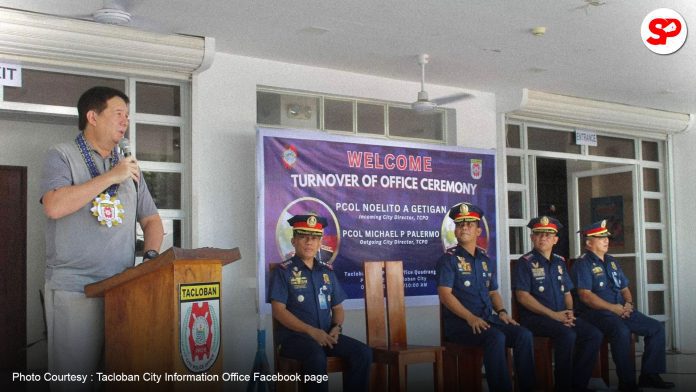By David Vera
National Correctional Consciousness Week (NACOCOW) marks a vital opportunity for the Philippines to reflect on a significant issue: how we view and treat Persons Deprived of Liberty (PDL). In a society where justice is often seen through a punitive lens, NACOCOW serves as a reminder that rehabilitation and reintegration are just as important as punishment. Initiated by the Bureau of Jail Management and Penology (BJMP) under the guidance of JSSUPT Bernardo M. Sanchez, this year’s theme, “Makatulong Pakikiutungo, Matinong Pamumuno at Matatag na Prinsipyo Tungo sa Maunlad na Serbisyong Pampilitan,” invites us to think deeply about leadership, community support, and the principles of justice that guide us as a society.
The Philippines has a long history of viewing imprisonment largely as punitive, a mindset that can be traced back to Spanish colonial times when harsh penalties were imposed for even minor offenses. The rise of modern justice systems, particularly after the American colonial period, began to shift focus towards reform, yet the remnants of the old system remained. NACOCOW, established by Proclamation No. 552 in 1995, embodies a modern approach that emphasizes rehabilitation over retribution, placing a spotlight on helping PDLs become productive members of society.
Rehabilitation, however, is a process that requires not only systemic support but also cultural change. The long-standing stigma attached to being incarcerated remains a major obstacle for former inmates trying to reintegrate into their communities. In Philippine culture, where close family ties and communal identity are paramount, this stigma often extends to the families of PDLs, making reintegration even more difficult.
One of the core aims of NACOCOW is to promote public awareness of the importance of reintegrating PDLs back into society. For many, the assumption is that those who commit crimes are beyond redemption, but NACOCOW challenges that idea by highlighting the necessity of offering second chances. This focus is critical in a nation that is still grappling with issues of poverty, inequality, and social justice, where crime is often a byproduct of systemic failings rather than individual moral failures.
The week-long celebration, launched with a motorcade and involving multiple local agencies, symbolizes the need for community collaboration in this mission. The event in Palo, Leyte, featuring participation from the local police, fire departments, and other public offices, is a clear signal that rehabilitation and social reintegration cannot be the responsibility of the criminal justice system alone. It requires collective action.
While NACOCOW is a step in the right direction, much work remains. Prisons in the Philippines are notoriously overcrowded, a problem exacerbated by the country’s strict drug laws. According to the International Centre for Prison Studies, the Philippines’ prison system is operating at over 500% capacity in some facilities. Overcrowding not only limits access to rehabilitation programs but also increases the likelihood of recidivism.
For genuine rehabilitation to take place, the system must offer more than just confinement. Education, skills training, mental health services, and consistent support systems both inside and outside the jail are crucial. Current efforts by the BJMP to engage communities in understanding the reintegration process are commendable, but they need to be backed by more robust government policies that address the structural deficiencies of the correctional system.
The appointment of Police Colonel Noelito A. Getigan as the new City Director in Tacloban, replacing PCOL Michael Palermo, also signals a shift towards enhancing public safety and community collaboration. Getigan’s leadership will be crucial in fostering stronger relationships between the police and local communities, furthering the goals of both public safety and the successful reintegration of PDLs.
As we reflect on NACOCOW and its message of redemption, it is essential to remember that this is a shared responsibility. The success of reintegration efforts depends on society’s willingness to embrace those who have paid their debts to society. Public perception needs to shift from seeing former inmates as threats to recognizing them as individuals who can contribute positively to their communities.
Programs such as NACOCOW are vital, but they need continuous support from both the government and the public. We must continue to ask ourselves: Are we doing enough to provide second chances? Are we willing to move beyond punitive justice to embrace a system that prioritizes rehabilitation?
Let us not forget that rehabilitation is not just about the individual; it is about the collective well-being of society. When we invest in the rehabilitation and reintegration of PDLs, we invest in a safer, more inclusive, and just society for all.
As NACOCOW reminds us, the road to justice does not end with incarceration. It continues with reintegration, forgiveness, and the understanding that everyone deserves the chance to start anew. It is time for us to act on these principles and ensure that the Philippines’ justice system truly serves all its people.
Let us support initiatives like NACOCOW not just during its commemorative week but year-round. Communities, local governments, and individuals can help by fostering inclusive spaces that welcome back former inmates, providing them with opportunities to rebuild their lives. Together, we can build a society that values rehabilitation over retribution, where second chances are not just an option but a priority.

